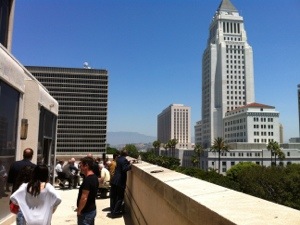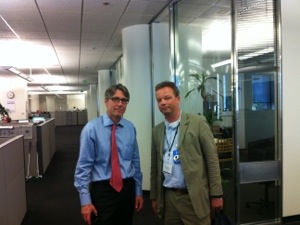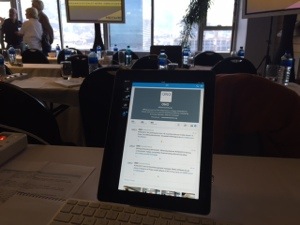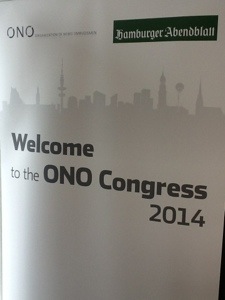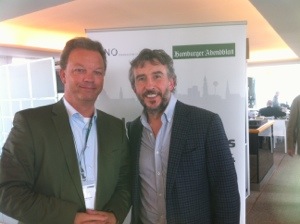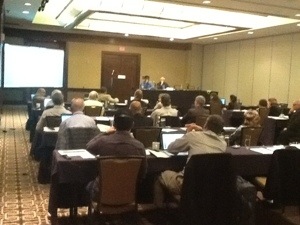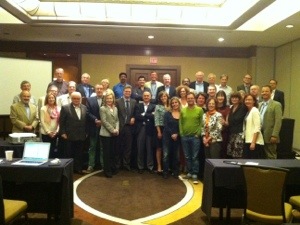 An deeply interesting issue comes up, also the media ombuds have to monitor this development: The Committee to Protect Journalists (CPJ) – an American independent nonprofit organization, based in New York City, New York, that promotes press freedom and defends the rights of journalists – brings up this:
An deeply interesting issue comes up, also the media ombuds have to monitor this development: The Committee to Protect Journalists (CPJ) – an American independent nonprofit organization, based in New York City, New York, that promotes press freedom and defends the rights of journalists – brings up this:
Media suffer winter chill in coverage of Sochi Olympics
In the run-up to the Sochi Winter Games, official repression and self-censorship have restricted news coverage of sensitive issues related to the Olympics, such as the exploitation of migrant workers, environmental destruction, and forced evictions. The information vacuum comes amid a generally poor climate for press freedom across Russia.
A CPJ special report by Elena Milashina and Nina Ognianova
Published January 28, 2014
NEW YORK
On October 17, 2013, Roman Kuznetsov, a construction worker from the Russian city Orenburg who had traveled to Sochi to help build the media center for the 2014 Winter Olympic Games, sewed up his lips using a needle and black thread, staging a one-man protest against his employer’s failure to pay his wages for months. On a blank sheet of paper, Kuznetsov wrote: “Please help get the reporters’ attention! I am not from around here.”
Exploitation of migrant workers is but one abuse that has stained preparations for the 2014 Winter Olympics in Sochi in February, along with corruption, environmental damage, eviction of local residents with little or no compensation, bankruptcy of local businesses, and adoption of laws contrary to the Russian Constitution, local journalists and activists told CPJ. According to these sources and the international organization Human Rights Watch, which has done extensive research and advocacy on human rights in Russia ahead of the Games, these violations are known to local law enforcement, the Russian government, the national justice system, and the International Olympic Committee, or IOC—the Lausanne, Switzerland-based organizer and designated custodian of the Olympic principles of equality and human dignity through sports.
But the abuses have gone largely uncovered by the Russian news media. The majority of news outlets, particularly those controlled directly by the state, prefer to cover Sochi the way they would cover a deceased man: in a positive light or not at all. CPJ research shows that both official repression and self-censorship have restricted coverage of sensitive issues in the run-up to Sochi—the most expensive Games in Olympic history, according to news reports.
The information vacuum comes amid a generally poor climate for press freedom across Russia. Since returning to the presidency in May 2012, Vladimir Putin has signed a number of restrictive laws directly or indirectly curbing media and Internet freedom. In addition, a cycle of impunity has continued to chill coverage of sensitive subjects, with investigative journalism declining due to self-imposed or external censorship.
In compiling this report on local press freedom, CPJ’s Moscow correspondent spent a week in Sochi and the regional capital, Krasnodar, and interviewed dozens of people, including editors-in-chief, reporters for local and national media outlets, bloggers, rights activists, lawyers, and local residents.
Censorship and state financing
Sochi, a resort city on the Black Sea coast of the western Caucasus and adjacent to the Georgian Autonomous Republic of Abkhazia, is the de facto summer capital of Russia. With the presidential Bocharov Ruchei residence on the city’s outskirts and the frequent presence of the president, Sochi, population 370,000 according to the latest census, is known as “Putin’s town.” Tourism is the main economic driver. The food and food-processing industries were signatures of the area in Soviet times, but state farms and manufacturing plants are in decay. In the run-up to the Olympics, Sochi has become a boomtown, with high-rise residential and office complexes dotting a city otherwise filled with Stalinist Gothic architecture.
Development has not extended to the local media sector. Sochi residents rely mostly on national, state-owned news outlets, which have correspondents either in the city or the region. The local print media are all dependent on the municipal budget for survival, so critical information about political, social, and economic issues is scarce. Periodicals consist mainly of entertainment content reprinted from the Internet and local business advertisements.
In theory, the Olympics should be the main topic for Sochi journalists. Yet almost all local media—state- and privately owned—report only those news events that have been officially cleared for coverage, according to local journalists. These include the arrival of IOC delegations and public statements by federal and local officials praising the pace and progress of preparations.
President Vladimir Putin visits a volunteer center for the Olympics in Sochi in January. (Reuters/Alexei Nikolskiy)
“Local media largely ignore issues crucial to Sochi residents directly affected by the arrival of the Olympics on their doorsteps,” Olga Beskova, editor-in-chief of Sochinskie Novosti (Sochi News), Sochi’s only private online newspaper, told CPJ. These issues, she said, include “multiple, long-lasting power and water outages, most inconvenient in wintertime; the colossal traffic jams caused by Olympic construction; the eviction of residents from homes that had the misfortune of standing in the path of planned Games venues; the faulty construction of homes offered by the state to evicted residents; multiple violations of the Labor Law, and, last but not least, corruption committed in the course of Olympic construction, as well as in receiving illegal permissions from the Sochi administration for the construction of large private homes and shopping malls unrelated to the Games.”
Local residents, civil activists, and human rights defenders who try to bring public attention to these and other issues say they are largely ignored by state media in Sochi even though these outlets receive budget financing, or in other words, are funded by taxpayers to cover matters of public interest. According to the local Internet portal Blogsochi, which cites the government website Zakupki (Purchases), in just the four months from December 2012 to March 2013, the Sochi administration distributed 32,628,600 rubles (US$988,778) from its budget to 17 media recipients, including four television channels, six newspapers, one magazine, three radio stations, and one informational agency. It is not clear what form the funds took—for example, to pay for advertising or simply as government handouts.
Local reporters and former reporters told CPJ it is common for Sochi media that receive government financing to be directly censored by the information department of the Sochi city administration. This includes review of programming before it airs; the banning of articles or the airbrushing of broadcasts to rid them of details embarrassing to the authorities; and the granting of access to city government activities only to the local crew of the government-run All-Russia State Television and Radio Broadcasting Company (VGTRK), which then shares its coverage with other media. The prism of VGTRK is pro-government, and its broadcasts resemble paid advertising rather than independent reporting. Local journalists told CPJ that VGTRK often stages interviews with people speaking scripted lines but passing as ordinary Sochi residents.
Anna Gritsevich, a former correspondent for the Sochi branch of VGTRK, told CPJ that the channel produces a total of 15 minutes of original news programming a day. “This is either commissioned and paid content, or advertisement passed for news,” Gritsevich said. She recalled an example. “Once I was assigned to report on the building of a parking lot next to a kindergarten. Parents were indignant and against the parking lot. However, I was forced to interview only specially prepared people, who all said it was ‘so great that there will be a parking lot here,’ ” said Gritsevich, who now works at Sochinskie Novosti. VGTRK’s Sochi branch did not respond to CPJ’s faxed request for comment.
Said blogger Aleksandr Valov, the founder of Blogsochi: “One begins to understand why Sochi media only talk about the government’s achievements and keep silent about the problems. The popular saying, ‘He who pays the piper calls the tune’ comes to mind.”
In addition to ignoring sensitive issues stemming from preparation for the Games, some state media issue propaganda to play down or discredit the grievances of people adversely affected by the Games. This relationship has damaged Sochi residents’ trust in the Russian media, CPJ found. Sochi civil activists and human rights defenders shun a number of state media outlets, including the national television channel NTV, which is known for producing damaging “documentaries” about rights defenders, for fear that they would fail to accurately report on the issues of their concern.
In 2010, NTV produced a film marketed as a journalistic investigation, in which the station depicted Sochi residents protesting eviction from their homes in connection with Olympic construction as greedy, unscrupulous people trying to blackmail the state for major financial compensation for their dilapidated property. The program was shown nationwide. Human Rights Watch, the Russian service of the US-funded Radio Free Europe/Radio Liberty, and a handful of Russian independent news outlets, including the regional news website Kavkazsky Uzel and the Moscow-based newspaper Novaya Gazeta, have reported that many evicted residents received inadequate or no compensation for their homes and were offered poor quality, hastily built alternatives, but the NTV film did not cover this angle. NTV’s management did not reply to CPJ’s faxed request for comment.
A screenshot of the NTV film. (YouTube)
One thing that did feature in the NTV program was a statement by the press secretary of Russia’s Olympic Committee, Gennady Shvets, who said he believes Russia must emulate the Chinese example when it comes to upholding human rights in the Olympic context. “In Beijing,” Shvets said in the NTV film, “they don’t care much about protest moods. They call their armed guys, who quickly collect the protesters, load them quickly into vans, and drive them out. And the space for building the Olympic venues is cleared spotless.”
Programming like this damages the credibility of all journalists, not just those employed by state media. Gritsevich told CPJ she had to work hard to earn the locals’ trust when she was assigned to cover protests by residents in Kudepsta, a Sochi neighborhood, in April 2013. The residents were demonstrating against the construction of a power plant that environmental experts said would threaten the local ecology; the government said it would be the largest natural gas-powered station in the world. Although the protesters needed publicity to amplify their message, they were reluctant to talk to her at first. (The project was eventually abandoned after the activists’ campaign.)
“Local residents whose rights have been abused in the course of Olympic venues’ construction do not trust Russian journalists. In the beginning, people rejected my interview requests,” but they warmed up after a year, said Gritsevich, who has gained greater editorial freedom since switching news outlets. “They stopped being afraid of talking to me. They stopped fearing that our newspaper will publish something false about them. Now, on the contrary, they call me when something happens and ask me to go to the scene and cover it.”
Activists take on journalistic roles
In the local information vacuum, a community of environmental activists and human rights defenders has taken on some journalistic functions. The activists use social media and blogs to raise social, political, and economic issues.
Vladimir Kimaev is an activist with Ekologicheskaya Vakhta po Severnomu Kavkazu (Environmental Watch on North Caucasus, or Ekovakhta for short), the most prominent environmental organization in the Krasnodarsky region. He was drawn to the line of work when Olympic construction led to the wholesale destruction of Sochi’s forested areas in 2009. He would video record authorities’ steps to destroy the forests, and the protests that followed. He would publish his recordings on YouTube and blog about what he had witnessed on the Internet platform Privet Sochi.
Kimaev founded his own site, Word-Sochi where he regularly published information about environmental damage related to Olympic preparations, including water pollution, deforestation, and mudslides, all documented by Ekovakhta and other environmental activists. Local residents told CPJ that they preferred to call Kimaev and activists like him than to take their complaints to the police or prosecutors. “It’s useless to call the authorities because they don’t react,” a Sochi taxi driver told CPJ, “but environmental activists are always there for us.”
Construction for the Olympic Games has led to the destruction of forests in Sochi. (Reuters/Gennady Fyodorov)
Activists have drawn official pressure and harassment for their work. Not a single one of Ekovakhta’s news conferences regarding the environmental impact of Olympic construction has taken place “in peaceful conditions,” Kimaev told CPJ. The police have sealed Ekovakhta’s rented conference venues right in front of international reporters, he said, forcing the activists to talk to the journalists in the street or at local coffee shops. Even withholding the details of a conference until the last minute has not prevented security services from showing up, he said, leading him to suspect that his and other activists’ telephones are tapped.
The local branches of the Federal Security Service (FSB) and the Interior Ministry’s Center for Combating Extremism, a police division, have pressured individual Ekovakhta members to stop their activities as environmental defenders and to cease publishing critical reports about the impact of Olympic preparations. During a March 2013 joint inspection of Ekovakhta, the FSB and the Interior Ministry warned the organization that its activities were consistent with those of a “foreign agent” and that it must register as such. Under a July 2012 law, nongovernmental organizations that receive international financing and are involved in “political activity”—the law does not clearly define the term—are to register as foreign agents with Russia’s Justice Ministry. The designation bears a negative connotation and in effect vilifies the NGOs as traitors or enemies of the state.
Kimaev told CPJ that he receives regular calls from the local police and the FSB. “Agents would call and ask if we were planning any protests and whether we were sure we needed to do that.” The implication, he said, is that there could be consequences if the plans went ahead. Sochi police did not respond to CPJ’s faxed request for comment.
One Ekovakhta activist, Suren Gazarian, has already been subject to politically motivated prosecution, according to Human Rights Watch. Gazarian was forced to flee Russia in December 2012 because of a threat of imprisonment on trumped-up attempted murder charges, the rights organization reported. Gazarian, who recounted his ordeal for a variety of publications from his exile in Tallinn, Estonia, said the case stemmed from his visit to a construction site on the Black Sea where a private marina was reportedly being built, allegedly for Putin. He and other activists, traveled to the site to estimate its environmental impact. There, an armed guard approached and seized Gazarian, twisting his arm behind his back. Two other security guards appeared. Gazarian said he was able to free himself from the guard’s grip and, to defend himself, picked up a small rock and told the guards to back off. One guard claimed Gazarian’s actions constituted a death threat against him. Authorities opened an attempted murder criminal case against the activist in August 2012.
Suren Gazarian examines a black substance in the mud near Sochi. (AFP/Mikhail Mordasov)
Kimaev has also faced official retaliation. On May 28, 2013, investigators from the Sochi police simultaneously ransacked his apartment and his summer home, allegedly in connection with a criminal case in which they said Kimaev was a witness, Kimaev’s lawyer, Aleksandr Popkov, told CPJ. Kimaev said neither search was carried out with preliminary court approval as required by law. The investigators’ goal, Kimaev told CPJ, appeared to be to search his properties in his absence and, as is common practice for local law enforcement, “find” compromising items such as drugs or weapons. He said authorities were forced to cut their searches short when they discovered he was not out of town as scheduled. Sochi police did not respond to CPJ’s request for comment on Kimaev’s allegations.
Other local rights defenders told CPJ that instead of investigating reports of corruption, labor law violations, and other abuses related to the Games, authorities have pursued the organizations and individuals who publicize such issues. Semyon Simonov, coordinator of the Migration and Law Network at the Sochi branch of the prominent human rights organization Memorial, which monitors conditions for migrant workers, said his center has been receiving complaints by uncompensated workers since 2009. “When the situation took on a public dimension, Russian Deputy Prime Minister and Olympic supervisor Dmitry Kozak admitted to only two such cases while there were hundreds more,” Simonov told CPJ. “The prosecutors did not react in any way. The Russian Investigative Committee to this day has not opened a single criminal case against unconscionable employers.”
Popkov, the lawyer, also works with Memorial on migrant workers’ claims. He told CPJ he was “not aware of a single criminal case” opened by authorities related to unpaid workers’ wages. “Nothing has changed in this aspect since the beginning of the Olympic construction,” Popkov said, “and now practically all venues are completed.”
Laborers stand in line to enter the Olympic Park in Sochi. (Reuters/Maxim Shemetov)
Simonov said local prosecutors have summoned him several times for “conversations,” in which they have threatened to start criminal investigations against him in retaliation for his outspokenness, in media like Facebook posts, on the seeming inaction by authorities to address migrant workers’ grievances.
Instead, the Sochi prosecutor’s office, along with the local branch of the Russian media regulator Roskomnadzor, since the beginning of 2012 has started 45 administrative cases against Sochi media outlets on the pretext that these outlets have failed to leave copies of each new issue of their periodicals at local public libraries, reported popular local blogger Roman Shikarev, founder of the rights monitoring center For Law and Order, citing the Central District Court of Sochi’s website. Shikarev reported that the officials filed claims with the court to have the outlets’ licenses withdrawn. Under Russia’s Law on Mass Media, all media are obligated to register with and receive a license from the Justice Ministry. The same law obligates outlets to submit copies of their issues to public libraries.
CPJ interviewed the chief editors of several of those publications, who conceded that they have sometimes not carried out this requirement, which is cumbersome and costly. They said the requirement is routinely ignored by the majority of Sochi media.
Meanwhile, none of the outlets were officially informed of the prosecutors’ actions; library workers informed them of the inspection. The cases have not proceeded further, but the editors told CPJ that the intention was intimidation.
Svetlana Sagradova, the editor-in-chief of the local business magazine Na Stol Rukovoditelyu (On the Manager’s Desk), told CPJ: “I know that, any time they want, authorities could use this ridiculous pretext to close down my publication. I don’t want any problems, and this is why I don’t publish much” about the Games. Sagradova added: “Nobody calls me; nobody says to me what I should or should not write about. But I know what the topics that would anger the authorities are, and I have imposed self-censorship when it comes to those. Because—one move by the prosecutors—and my publication could lose its license.”
In an emailed response to CPJ’s faxed request for comment, Aleksei Rakhvalov, deputy head of Roskomnadzor’s South Federal District, which includes Sochi, said a news outlet that does not file the mandatory library copy cannot be punished by closing down the publication. He said that any obstruction of the free flow of information is punishable by law.
The Sochi Prosecutor’s Office did not respond to a separate request for comment.
International coverage can boost local coverage
Gazarian, the exiled environmental activist, told CPJ that his organization relies on a few independent Russian media and especially on international reporters to raise the issues of concern, while Shikarev said there is an inverse correlation between the audience size of Russian outlets and the amount of coverage they devote to problems related to the Games. The majority of the Russian media, local and national, cover Sochi in a critical manner only when an issue has already taken on global proportions and the publicity has crossed Russia’s borders.
Even large, privately owned media come under some degree of state pressure. One example is the decision by the management of the prominent business daily Kommersant to take the seasoned journalist Olga Allenova off the Sochi story after Allenova illuminated embarrassing facts related to the Olympics’ preparation.
Allenova told reporters at an investigative journalism forum in April 2012 in St. Petersburg that her removal from the Sochi beat and the dismissal of her boss, Maksim Kovalsky, as editor of the sister Kommersant-Vlast magazine, was due to their refusal to bow to official pressure to stop investigating the eviction, without compensation, of Sochi residents whose homes were destroyed to make room for Olympics venues.
In an interview for the online portal Lenizdat, Allenova said she spent six months in 2011 investigating social issues and human rights abuses in Sochi, all related to the Olympics, on assignment for Kommersant-Vlast. During the course of the investigation, which resulted in a series of articles, Allenova said, the newsroom received a number of threatening letters from various tiers of Russia’s government. The government agencies “made sure we understood that if we did not shut up and stop ‘spoiling the country’s image,’ we would have serious problems,” Allenova said. The pressure caused a rift in Kommersant-Vlast’s editorial board between those who wanted to comply with the government demands and those who did not, Allenova told Lenizdat. Kovalsky decided to ignore the threats and continue publishing Allenova’s series.
Kovalsky was fired in late 2011, a few months after the series was published. The stated reason was that he had recently allowed the publication of a controversial photo of an electoral ballot on which a voter had scribbled an expletive addressed to then-Prime Minister Putin. According to Allenova, the expletive was used as a pretext by Kommersant’s owner, Alisher Usmanov, who is a friend of Putin and, according to Forbes magazine, Russia’s richest man.
After Kovalsky’s dismissal, the new magazine management took Allenova off the Sochi story; Kommersant continued to cover the Games’ preparations, but as part of the so-called Olympic pool, consisting mainly of state and mainstream media reporters, whose newsrooms comply with the unwritten directive to cover the Olympic story in a positive light. Kommersant’s coverage now differs drastically from Allenova’s. Neither Usmanov nor Kommersant-Vlast’s interim editor-in-chief, Azer Mursaliyev, responded to CPJ’s emailed request for comment.
CPJ’s Moscow correspondent had the opportunity to witness how censorship of the Olympic subject works. A Sochi correspondent for a major Russian news agency sent three news stories to the Moscow headquarters during an interview with CPJ. The first story dealt with the arrest of Sochi journalist Nikolai Yarst, in which the evidence points to foul play by law enforcement. (Yarst, a reporter with the public television channel OTR, was investigating the case of a local girl who was taken out of Russia by her stepfather against the will of her blood relatives and the possibility that authorities had taken bribes to allow the girl to be taken abroad, according to news reports. At the time of his arrest, Yarst was headed to the Investigative Committee agency to see the girl’s case files. His report for OTR was never finished. The police claimed to have found narcotics in Yarst’s car, and he was placed under house arrest. Yarst’s lawyer, Aleksandr Popkov, told CPJ that his client’s detention and the evidence of drug possession against him were marred by procedural violations.)
A woman gets her weekly water ration in Sochi. Wells have gone dry since construction began for the Sochi Olympics. (Reuters/Thomas Peter)
The second story the Sochi correspondent filed with her Moscow headquarters was about the malfunction of the waterworks at a new, hastily built residential complex where evicted residents had been housed. The third was about worsening weather in Sochi and the possibility of a major storm. (The week before, torrential rains had flooded newly built roads and downtown Sochi streets had been submerged.)
None of the three stories made it to the news wires. The Sochi correspondent told CPJ that her Moscow editor explained, “You may have a storm, a twister, and even a 9-Richter-scale earthquake; still, we have to write that all skies are clear over Sochi.”
Kimaev, the environmental activist and blogger, told CPJ: “I have no hope that the Russian media would cover what goes on here. We have figured out that the most effective way of applying pressure to the government is through telling our stories to the Western media and to international organizations.” He continued, “We send our press releases to all leading international news agencies and media outlets, from Reuters to Al-Jazeera.” Ekovakhta invests in translating its press releases into English. “The list of our international subscribers is 10 times bigger than that of domestic journalists. Western journalists react quickly and professionally, and their coverage has an impact,” Kimaev said.
When the resonance of international coverage is such that an issue can no longer be ignored by Russian media, Kimaev said, the domestic media will pick up the story, too. More important, Kimaev said, Russian authorities may then have to address the problem.
International attention is what helped local residents protect their environment from the planned building of the Kudepsta power plant, Kimaev said. The building of the plant was canceled in May 2013. “It is the solidarity of international media and human rights groups that gives us a sense of being protected,” Kimaev told CPJ.
Simonov, the Sochi coordinator of Memorial, told CPJ that the group works mostly with Russian independent, Internet-based portals and international media as there is little interest from traditional, established Russian media. In 2012, Simonov said, he gave 20 interviews, but only three of them to domestic media. “It would be good if Russian media were half as active as international media,” Simonov said, “but they are either uninterested in the Sochi theme or I am drawing the conclusion that they are simply forbidden to cover it.”
Yet some international journalists have also been obstructed or harassed when reporting on events in Sochi. In a striking example, the police from the southern Russian Republic of Adygea neighboring Sochi repeatedly stopped, detained, bullied, and threatened with imprisonment a two-person crew with the Norwegian TV2 television station—the country’s official broadcaster of the Olympic Games. From October 31 to November 2, 2013, officers stopped reporter Øystein Bogen and cameraman Aage Aunes six times and detained them three times while the crew was reporting on the impact of the Games’ preparations on local residents, the journalists told Human Rights Watch.
Police conduct a traffic stop in Sochi and check a driver’s documents. (Reuters/Maxim Shemetov)
The officers repeatedly questioned the journalists about their intended work in Sochi and the region, and tried to elicit information about their sources as well as their personal lives, education, and even religious beliefs, the rights organization reported. On several occasions, the police refused to allow the crew to contact the Norwegian Embassy in Moscow. In one particularly aggressive episode, the police tried to coerce Bogen into taking a drug test, and, when he refused to do so, threatened to jail him. Eventually, police told the journalists there had been “a misunderstanding,” and released them, Human Rights Watch said.
In an email interview with CPJ, Bogen said the Russian Ministry of Foreign Affairs apologized for the harassment, blaming it on low-ranking officials and human error. But Bogen expressed concern that the detentions were a pretext to extract information—including access to TV2’s sources in the region—from the reporters’ equipment, which the police at one point confiscated and kept for three hours. “When I received my iPhone back,” Bogen told CPJ, “there was clear indication that the SIM card had been removed and probably copied. I have reasons to believe my contacts have been compromised.” Bogen said some of TV2’s local contacts reported being harassed by authorities after the crew left the region. “Some of my contacts have reported that they have been interrogated and have had their houses searched after we left,” Bogen told CPJ.
In a separate case, also in October 2013, Dutch photojournalist Rob Hornstra, cofounder of the multimedia Sochi Project dedicated to shedding light on the region beyond the Olympic glow, was denied a Russian visa in an apparent attempt to stop him from doing further work in the turbulent North Caucasus. Hornstra had interviewed local residents and uncovered human rights abuses stemming from the Games’ preparation for the Sochi Project, press reports said. Russian authorities did not explain the reasons for denying the visa, the English-language newspaper The Moscow Times reported. In the past, authorities have used a law against critical journalists, which allows them to bar “internationals” from Russia “for the purpose of protecting the defense capability and security of the state or the social order, or for the protection of the public health,” CPJ research shows.
An international journalist working for a major news agency told CPJ that the agency regularly reports on sensitive issues around the Olympics. But the journalist, who declined to be named because of a lack of authorization to comment on behalf of the news organization, said officials have often been unhelpful, ignoring requests for comment, or outright hostile. “We also have had indications that our phone calls and email have been monitored during reporting trips in Sochi,” the journalist told CPJ. “Security officials have seemed to know in advance about meetings arranged by phone or email.”
At least one major foreign publication plans to devote resources to covering Sochi beyond the Games. Oliver Fritsch, sports writer for Die Zeit, said the German weekly will split its coverage in two, with one half devoted to the sporting competition and the other to politics, economy, ecology, and the plight of homosexual athletes. “The latter half will be printed in black and white to show readers, at a first glance, that there are ‘two games,’” he told CPJ. “It’s always important for us to consider sports as a sociopolitical matter, not only in Sochi.”
A record repressive climate
Russian media’s silence about the plight of those affected by Olympic abuses comes as the climate for human rights and press freedom in the country is at a historic low point.
“After returning to the Kremlin in 2012, Putin rolled back the modest progress in the realm of rights and freedoms gained under [former President Dmitry] Medvedev’s one term in office,” Rachel Denber, deputy director of the Europe and Central Asia Division of Human Rights Watch, told CPJ. “The present is the worst time for civil activists, rights defenders, and independent journalists since the break-up of the Soviet Union.”
An exterior shot of the press center for the Olympic Games in Sochi. (Reuters/Pawel Kopczynski)
During his third term in office, Putin signed a breathtaking number of restrictive laws, all approved by Russia’s parliament, the State Duma, quickly and with little if any debate. Some of the most significant pieces of legislation are the “foreign agents law,” which came into force on July 21, 2012; a bill signed nine days later, which returned defamation to the criminal books; and another law, signed days after the defamation bill, which blacklisted websites carrying “unlawful content”—a term open to broad interpretation. A few months later, on November 12, 2012, Putin signed a law that expanded the definition of treason in a manner so vague that it could chill regular contacts and information-sharing between Russian and international journalists, human rights defenders, and civil activists as an act of espionage.
And on June 30, 2013, Putin signed legislation commonly known as the homosexual propaganda law—an act that legitimizes discrimination against lesbian, gay, bisexual, and transgender (LGBT) persons, and which, in effect, encourages homophobia and chills news coverage of the LGBT community. Konstantin Iablotckii, a Moscow-based LGBT rights defender and a member of the Russian LGBT Sport Federation, said recent waves of violence against LGBT persons have not received media coverage partly because of direct censorship, “but part of it is fear of the application of this law.” At a news briefing in New York in December 2013, Iablotckii said: “If the media cover the LGBT rights in anything that resembles a sympathetic way, they could be blamed with producing gay propaganda and punished for it. Better to play it safe.” He also said that LGBT athletes who have been supportive of the Russian LGBT Sport Federation have been approached by Russian authorities and “advised” to “stop talking to the media” and “stop promoting their sexual orientation.”
This atmosphere of restriction, vilification of “otherness,” and hostility to all things “foreign” is in sharp contrast to the Olympic Charter, which Russia, as host of the Games, is obligated to uphold. “The Olympics are part of the Kremlin’s vision of a great Russia, fully revived from the chaos that followed the break-up of the Soviet Union, and resurgent on the world stage,” Denber said. “This has clearly eclipsed the other part of the Olympic equation—adherence to values enshrined in the Olympic Charter.”
The proximity of the Games to the volatile North Caucasus region also casts a shadow over the event. According to CPJ research, the region is Russia’s most dangerous place for journalists. Of the 16 murders of journalists in Russia over the past decade, eight were committed in the North Caucasus republics—all of the victims were local journalists, and all of the crimes were committed with impunity. The staple violence against the press has chilled coverage of the region as reporters censor their own coverage to protect their safety.
Jane Buchanan, associate director for Human Rights Watch’s Europe and Central Asia Division and the organization’s lead researcher on the Sochi Winter Olympics, told CPJ that international journalists traveling to the Games could have significant impact on the landscape. Reporters, Buchanan said, “should look to highlight issues of concern for all of Russia including, but not only related to, press freedom, free expression, LGBT rights, as well as issues related to Russia’s preparations for the Games in Sochi: including evictions, exploitation of workers, and environmental damage.” Foreign journalists could also investigate the continued violence against Russian colleagues who try to cover the North Caucasus.
Buchanan noted that the IOC, which has the responsibility to engage with Russian authorities in cases of clear violations of the Olympic Charter, “has largely acted as a courier rather than an active participant” in resolving issues of concern.
Furthermore, the international community should not shift its gaze once the Games are over; a consistent spotlight on Russia would help protect the journalists, activists, and rights defenders, who have taken personal and professional risks to report on Sochi in detail. CPJ research has found that after the Beijing Summer Olympics in 2008, local authorities who had loosened some restrictions on the media backtracked once international attention had moved on.
“After the experience of Sochi and Beijing, the need to establish human rights benchmarks as a criterion for receiving the privilege of hosting the Olympics is clear,” Buchanan said.
“The candidate countries must commit to meeting clear and specific human rights benchmarks in order to be declared ready to host the Games,” she said. “Those benchmarks must be monitored and evaluated as thoroughly and with the same vigor that the IOC applies to monitoring a country’s readiness with Olympic venues and material resources.”
Elena Milashina is an award-winning investigative journalist with the independent Russian newspaper Novaya Gazeta and CPJ’s Moscow correspondent. Nina Ognianova is CPJ’s Europe and Central Asia program coordinator.
CPJ’s Recommendations
To the International Olympic Committee:
- Clearly and unequivocally condemn press freedom violations, including harassment, obstruction, and censorship of journalists, and demand assurances for their redress from Russian authorities.
- Ensure that host countries that fail to reach international standards for press freedom and freedom of expression suffer repercussions.
To the Russian government:
- Repeal laws that chill freedom of the press and freedom of expression. These include a law vilifying non-governmental organizations as “foreign agents”; a law censoring the Internet; a law expanding the definition of treason; a law re-criminalizing defamation; and a law restricting news coverage of LGBT minorities.
- Abstain from passing any new laws that chill freedom of the press and freedom of expression.
- Cease all censorship of the media, whether direct or through government-friendly media owners.
- Allow free, independent, and unobstructed coverage—by both international and domestic journalists and news outlets—of all issues surrounding the Sochi Olympics. Do not harass, prosecute, threaten to prosecute, or place under surveillance journalists or others who have criticized the negative impact of the Games on the local population.
- Investigate all press freedom violations, including the harassment of reporters and their sources, in a thorough and transparent manner. Hold to account those responsible for the obstruction of journalists and the harassment of their sources.
- Cease the practice of using state media to produce propaganda smearing the victims of human rights abuses perpetuated by authorities and the activists who defend such victims.
- Allow all international journalists, including those who have criticized your policies, entry into Russia.
- Halt the collection and storage of telephone and Internet data on journalists’ communications.
To corporate sponsors of the Games:
- Use your influence with the IOC and Russian authorities to ensure that Russia fulfills its pledges on media freedom. Insist that the IOC speak out on media freedom violations.
To international journalists covering the Games:
- Insist that Russian authorities honor their press freedom commitments to the IOC, both for visiting and Russian journalists.
- Report violations of press freedom, including harassment and intimidation of journalistic sources. After the Games, follow up with your Russian colleagues and journalistic sources and report any instances of harassment stemming from their previous communication with you or other foreign media representatives.

























